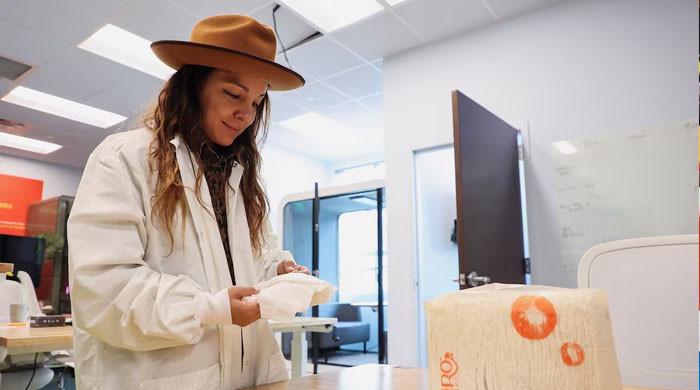Could baby poop and fungi work together to tackle landfill waste? That’s the idea behind a new product launched by an Austin, Texas-based startup that sells disposable diapers paired with fungi intended to break down the plastic.
Each of Hiro Technologies’ MycoDigestible Diapers comes with a packet of fungi to be added to the dirty diaper before it is thrown in the trash. After a week or two, the fungi are activated by moisture from feces, urine and the environment to begin the process of biodegradation.
Disposable diapers contribute significantly to landfill waste. An estimated 4 million tons of diapers were disposed of in the United States in 2018, with no significant recycling or composting, according to the Environmental Protection Agency. Diapers take hundreds of years to naturally break down. That means the very first disposable diaper ever used is still in a landfill somewhere.
To tackle this, Hiro Technologies turned to fungi. These organisms — which include mushrooms, molds, yeasts and mildew — derive nutrients from decomposing organic matter. In 2011, Yale University researchers discovered a type of fungus in Ecuador that can feed on polyurethane, a common polymer in plastic products. They figured the fungus, Pestalotiopsis microspora, would be capable of surviving on plastic in environments lacking oxygen, like landfills.
Hiro Technologies co-founder Tero Isokauppila, a Finnish entrepreneur who also founded medicinal mushroom company Four Sigmatic, said there are more than 100 species of fungi now known to break down plastics.
“Many, many moons ago, fungi evolved to break down trees, especially this hard-to-break-down compound in trees called lignin. … Its carbon backbone is very similar to the carbon backbone of plastics because essentially they’re made out of the same thing,” Isokauppila said.
Three sealed jars at Hiro Technologies’ lab show the stages of decomposition of a treated diaper over time. By nine months, the product appears as black soil — “just digested plastic and essentially earth,” Isokauppila said.
The company says it needs to do more research to find out how the product will decompose in real-world conditions in different climates and hopes to have the data to make a “consumer-facing claim” by next year. It also plans to experiment with plastic-eating fungi on adult diapers, feminine care products and other items.
For now, it is selling “diaper bundles” for $35 a week online. Co-founder Miki Agrawal, who was also behind period underwear company Thinx, said the MycoDigestible Diapers had been generating excitement from consumers and investors since launching about a month ago, declining to give details. Agrawal said the company had chosen to focus on diapers as the top household plastic waste item.
“There is a deleterious lasting effect that we haven’t really thought about and considered,” Agrawal said. “Because when you throw something away, no one’s asking themselves, ‘Where’s away?'”


